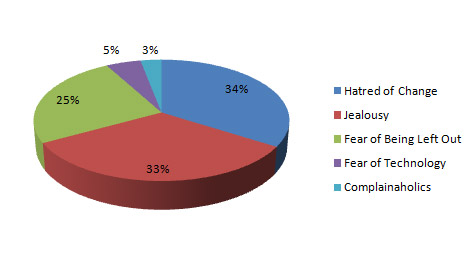“NO author should PAY to be published.”
“SELF-publishing is CHEATING.”
“All paid publishing companies will STEAL your money and give you a LOW-QUALITY end product.”
“Sure, self-publish. If you only want your GRANDMA to read your book.”
Ever hear phrases like the above? We have. And more.
A few days ago, we decided to visit a few popular writing forums on the web to offer advice to those considering self-publishing. We expected to find frustrated, hopeful authors with more questions than answers, eagerly looking for help.
What we found instead was vitrol.
I suppose we shouldn’t have been surprised. After all, the self-publishing world has been fighting for respect for years.
We certainly don’t make self-publishing out to be something that it’s not or deny that the end goal of most authors is still to get a traditional publishing deal. But we also feel there are a number of authors in certain circumstances for whom self-publication is a very viable option.
The real shock in all of this was the sheer intensity of the “haters.” Not satisfied to simply state their opinion, they’d actually belittle those pursuing the self-publishing route, scaring them so badly we fear few ever saw their book published.
The Root of the Hatred
It got us thinking: why? Why harbor so much hatred toward self-publishing that you’d discourage others from even giving it a try?
After brainstorming and posing the question on Twitter, we decided to make this pie chart to illustrate the reasons why we think some people hate self-publishing:
The Cowering, Green-eyed Monster
As you can see, hatred of change, jealousy and fear came out on top.
As @the_author_ said, “being unfamiliar with/misunderstanding this new breed of writers really freaks some people out.”
But why does this “freak out” occur? We wondered whether age could play a role due to the level of technical sophistication often required.
“Sometimes, yes,” she responded. “I’ve met some writers in their 60s/70s who are opposed to self-pub. Most younger writers I know are more into it.”
Vanity over Quality?
@Ali5tair (who shared his self-publishing story last week), had a different reaction. “People perceive selfpub = vanity project (but most art is, surely?) with no guarantee of quality. Not true in a lot of cases!” He went on to say, “Until the world gets its 1st breakthrough selfpub title that attracts wide critical acclaim, the situation’s unlikely to change…”
That got us thinking about the self-published titles that HAVE been true successes: The Joy of Cooking, Chicken Soup for the Soul, Eragon — just to name a few. Why didn’t the success of these titles lift the self-publishing stigma?
The Matter of Pride (or lack thereof)
The conclusion we came to was pride. Let’s be honest, most of us do not list self-publishing high on our childhood list of hopes and dreams. It’s a sort of “backup” plan we’re left with after being unable to publish traditionally. In some cases, this leads to believe that self/indie-publishing is somehow of lesser merit than traditional publishing.
I think that’s buying into the same stigma we should be fighting.
How to Change the Perception
We say let’s flip it on its head.
Be PROUD of the fact that you self-published. Even if it wasn’t your first choice.
You took something, entirely of your own creation and brought it to reality. No editor staring over your shoulder, no design department creating a cover without your input, no marketers choosing where to sell your book — just your ideas, in physical form, out in the world for everyone to read.
If you ask us, that’s something to be pretty darn proud of.
Next Steps
Show those haters who’s boss and help ensure self-publishing success by:
- Researching and understanding the self-publishing process.
- Contemplating your target market and marketing plan — before you ever write a word.
- Writing and revising as many times as it takes to get the book nearly perfect.
- Having a professional editor polish your work.
- Investing in professional graphic design for your cover and interior layout.
- Choosing a POD printer with the pricing and quality you desire.
- Marketing the heck out of your book.
- Saying, loud and proud, that you self-published and are not ashamed.
As always, if you need help with any of the above, give us a jingle. We promise we’re not out to steal your money or give you a low-quality end product – if we don’t produce success and quality, we’re finished. Period!
Talk Back
What do you guys think? Why do people get so upset about self-publishing? Why do you support it? Do you think the industry gets a bad rap, or is it a justified dislike? Let us know in the comments and at @duolit!


 We're
We're 








